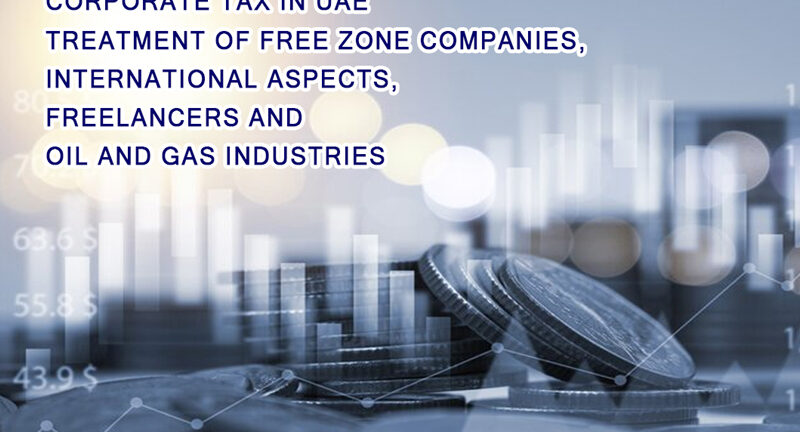The 9% CT rate, which is one of the lowest CT rates globally, was most likely selected to maintain the UAE’s attractiveness for foreign investment.
The CIT regime has been implemented by the UAE in view of achieving the following objectives:
- Cementing the UAE’s position as a world-leading hub for business and investment
- Meeting international standards for tax transparency and preventing harmful tax practices
- Accelerating the UAE’s development and transformation to achieve its strategic objectives
Details of the CT demonstrate the UAE’s commitment to align with international tax reform. The CT will be levied at a 9% standard statutory tax rate on adjusted taxable profits above AED375,000 (US$100,000) as a minimum threshold. A different tax rate for large multinationals that meet specific criteria set with reference to OECD’s Pillar Two will soon be announced.
TREATMENT OF FREEZONE ENTITIES
Free zone businesses will be subject to UAE CT, but the UAE CT regime will continue to honour the CT incentives currently being offered to free zone businesses that comply with all regulatory requirements and that do not conduct business with mainland UAE.
A business established in a free zone will be required to register and file a CT return. The UAE CT treatment that will apply to businesses in free zones will be the same across all free zones (i.e., no difference between financial and non-financial free zones).
Further details on the compliance obligations of free zone businesses will be provided in the future.
CURRENT FREE ZONE TAX INCENTIVES
Currently, free zones attract foreign investors by offering a zero corporate tax regime. Companies operating in the free zones are currently subjected to zero per cent corporate tax as well as zero per cent personal income tax. Such incentives have prompted many foreign investors to come into the UAE and start a business in one of the 40 plus active free zones in the country.
INTERNATIONAL ASPECTS
Foreign entities and individuals will be subject to UAE CT only if they conduct a trade or business in the UAE in an ongoing or regular manner. UAE CT will generally not be levied on a foreign investor’s income from dividends, capital gains, interest, royalties and other investment returns.
Foreign CT paid on UAE taxable income will be allowed as a tax credit against the UAE CT liability. The Ministry of Finance will remain the “competent authority” for purposes of bilateral/multinational agreements and the international exchange of information for tax purposes.
Finally, UAE businesses will need to comply with transfer pricing rules and documentation requirements set with reference to the OECD Transfer Pricing Guidelines.
TREATMENT OF INCOME EARNED BY FREELANCERS
Corporate tax will apply to income earned from activities carried out under a freelance license or a freelance permit. It is also important to note that the freelancer won’t be required to pay corporate tax if their annual net income doesn’t exceed AED 375,000.
TREATMENT TAXABILITY OF OIL AND GAS INDUSTRIES
Businesses operating in the UAE oil and gas industries, or businesses engaged in the extraction of natural resources will not be subject to the UAE corporate tax. The new UAE corporate tax is levied at the Federal level and hence such businesses will be exempted. However, these businesses are already subject to corporate tax at the emirate level and will remain subject to the same.
CONSIDERATION FOR BUSINESSES
UAE CT could have a significant impact on most businesses particularly on their domestic UAE operations, cross-border transactions and the interface with their overall global structures.
Further clarification on the CT is anticipated in mid-2022, following the expected release of the global minimum tax commentary by the OECD in February. The authorities have given stakeholders ample time to meet the June 2023 deadline. Consequently, businesses should undertake relevant actions to bring their tax affairs up to current international standards and in line with the CT’s implementation.

Alia Noor (FCMA, CIMA, MBA, GCC VAT Comp Dip, Oxford fintech programme, COSO Framework)
Associate Partner
Ahmad Alagbari Chartered Accountants






